You are attempting to run an SSIS package from the SSISDB catalog and need it to be in 32 bit mode.
The TSQL for such would look like the following
DECLARE @execution_id bigint;
EXEC SSISDB.catalog.create_execution
@package_name = N'Legacy_DataExport.dtsx'
, @execution_id = @execution_id OUTPUT
, @folder_name = N'Legacy_DataExport'
, @project_name = N'Legacy_DataExport'
, @use32bitruntime = True
, @reference_id = NULL;
SELECT
@execution_id;
DECLARE @var0 smallint = 1;
EXEC SSISDB.catalog.set_execution_parameter_value
@execution_id
, @object_type = 50
, @parameter_name = N'LOGGING_LEVEL'
, @parameter_value = @var0;
EXEC SSISDB.catalog.start_execution @execution_id;
GO
Of note is the penultimate parameter of the first EXEC where we specify @use32bitruntime = True
That says, please run the package Legacy_DataExport.dtsx which can be found in the project Legacy_DataExport which can be found in the folder Legacy_DataExport using the 32bit runtime.
From the UI perspective, it looks like

The click path within SSMS for this would be
- Expand the "Integration Services Catalogs" node under "Management"
- Expand the only option there of "SSISDB"
- Expand the Folder where your project exists - "Legacy_DataExport" in my case
- Expand the "Projects" node
- Expand your actual project node - my project is also called "Legacy_DataExport"
- Expand "Packages"
- Find your package, again my example is "Legacy_DataExport.dtsx", right click it and select
Execute...
